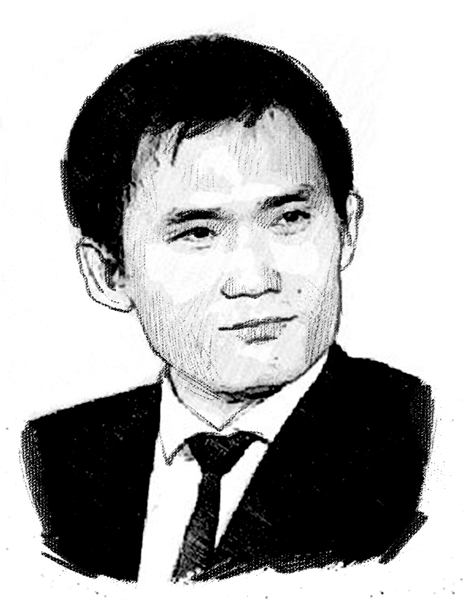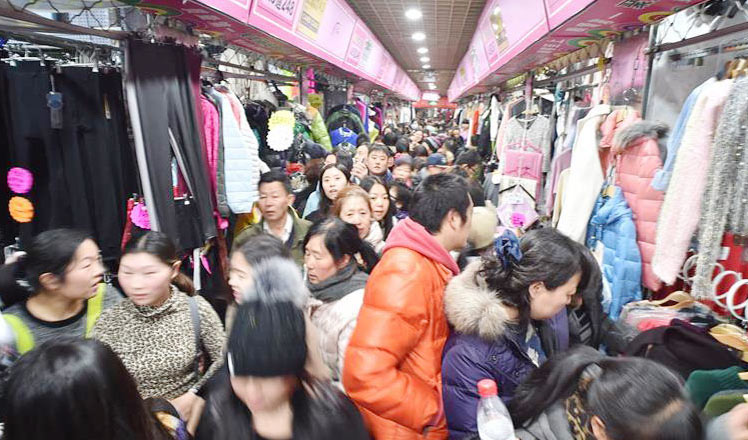Yearender: Predictions for 2016 through 20 questions
Updated: 2015-12-31 07:53
(China Daily)
|
||||||||
 |
|
Song Yu |
3. Will the renminbi depreciation continue?
Song Yu, chief economist at Goldman Sachs for China
Yes. Despite top policymakers reiterating their commitment to maintaining exchange rate stability and policy to keep the renminbi largely steady, uncertainty over China's foreign exchange policy and the sustainability of the Chinese currency's value remains high.
We (at Goldman Sachs) see the case for a weaker renminbi given the challenges of domestic growth and deflation and the potentially large pent-up demand of Chinese consumers for foreign assets, although we do not believe that the renminbi is greatly above fair value.
After all, China shows few symptoms of currency over-valuation. For example, China's trade surplus is still strong and Chinese exports' share in the global market has remained quite stable. But letting the exchange rate float freely could conceivably lead to large currency overshooting (much more weakening), depending on the prevailing market environment.
Our baseline expects a moderate 3 to 4 percent depreciation of the renminbi against the US dollar in 2016.
This view envisages what could be characterized as a second-best reform scenario-namely, that a favorable window of opportunity for reform will arrive and the authorities will take advantage of that to transition the renminbi regime to a market-based (clean float) one.
 |
|
Gao Ting |
4. Will the Chinese stock market see a steady boom?
Gao Ting, head of China strategy at UBS Securities Co
No. We (at UBS Securities) forecast a 1 percent profit decline for listed companies in the A-share market in 2016, compared with the estimate of 4 percent growth earlier this year. Corporate revenue will be under pressure because of weakened demand and economic deflationary pressure next year.
We expect the CSI 300 Index to be traded flat around 3,700 points by the end of 2016 (no big rise from the market at the end of 2015). The price-earning ratio is predicted to be 13.5.
Rising debt defaults by companies will hurt the asset quality of banks and reduce investors' risk appetite. In addition, based on experiences, the market does not perform well when there are strong expectations for a weaker renminbi.
But sectors such as consumption, healthcare and information technology will continue to outperform the rest of the market next year.
The weak growth momentum will weigh heavily on overall market sentiment, and the A-share market will be more liquidity-driven next year when Chinese policymakers are expected to launch more measures to stimulate growth.
The top leaders may strengthen fiscal and credit supports on infrastructure construction, but they are unlikely to launch a new round of aggressive stimulus policies.
- Top 10 policy changes in China in 2015
- Yearender: Ten most talked-about newsmakers in 2015
- Yearender 2015: Chinese athletes of year
- Yearender: 2015 auctions overview
- Yearender: China and US in 2015 - moving forward together
- Yearender 2015: Key words from stories that created buzz in China
- Yearender 2015: Stories that made headlines
- Yearender: 2015 auctions overview
- Yearender 2015: Natural disasters
- Top planner targets 40% cut in PM2.5 for Beijing-Tianjin-Hebei cluster
- Yearender: Predictions for 2016 through 20 questions
- Asia's largest underground railway station opens in Shenzhen
- Shanghai bans drug-using actors, drivers
- Clamping down to clean up the air
- Yearender: Ten most talked-about newsmakers in 2015
- Over 1 million refugees have fled to Europe by sea in 2015: UN
- Turbulence injures multiple Air Canada passengers, diverts flight
- NASA releases stunning images of our planet from space station
- US-led air strikes kill IS leaders linked to Paris attacks
- DPRK senior party official Kim Yang Gon killed in car accident
- Former Israeli PM Olmert's jail term cut, cleared of main charge

 Yearender: Predictions for 2016 through 20 questions
Yearender: Predictions for 2016 through 20 questions
 World's first high-speed train line circling an island opens in Hainan
World's first high-speed train line circling an island opens in Hainan
 'Internet Plus' changes people's lifestyles in China
'Internet Plus' changes people's lifestyles in China
 Rough waters on the sea front of West Wales
Rough waters on the sea front of West Wales
 Beijng Zoo wholesale market to be relocated by 2016
Beijng Zoo wholesale market to be relocated by 2016
 Iron woman: first female body builder in Egypt
Iron woman: first female body builder in Egypt
 Yearender: Chinese athletes of year
Yearender: Chinese athletes of year
 Yearender: Key words from popular China news stories in 2015
Yearender: Key words from popular China news stories in 2015
Most Viewed
Editor's Picks

|

|

|

|

|

|
Today's Top News
Shooting rampage at US social services agency leaves 14 dead
Chinese bargain hunters are changing the retail game
Chinese president arrives in Turkey for G20 summit
Islamic State claims responsibility for Paris attacks
Obama, Netanyahu at White House seek to mend US-Israel ties
China, not Canada, is top US trade partner
Tu first Chinese to win Nobel Prize in Medicine
Huntsman says Sino-US relationship needs common goals
US Weekly

|

|








